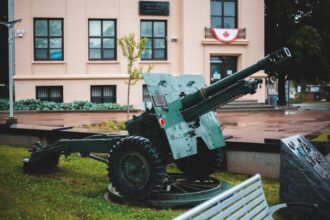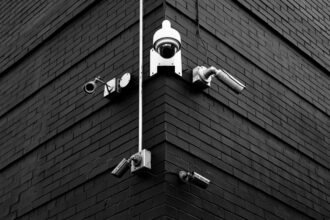Deniable operations, often shrouded in secrecy and ambiguity, represent a unique facet of modern military strategy. These operations are characterized by their covert nature, allowing governments to engage in actions that can be plausibly denied if they come to light. The essence of deniable operations lies in their ability to achieve strategic objectives while minimizing the risk of political fallout or international repercussions.
This approach has become increasingly relevant in an era where information is readily available and public scrutiny is intense. As nations navigate complex geopolitical landscapes, the need for such operations has grown, prompting military and intelligence agencies to refine their methodologies. The concept of deniable operations extends beyond mere military tactics; it encompasses a broader understanding of statecraft and diplomacy.
By employing covert actions, nations can influence events without overtly committing to a course of action that could provoke conflict or backlash. This duality of purpose—achieving objectives while maintaining plausible deniability—has made deniable operations a critical tool in the arsenal of modern warfare. As the world becomes more interconnected, the implications of these operations resonate not only within military circles but also in the realms of international relations and public perception.
Key Takeaways
- Deniable operations are covert missions carried out by special forces with plausible deniability to achieve strategic objectives.
- Covert missions have been a part of US military history, dating back to the Revolutionary War and continuing through modern conflicts.
- Special forces play a crucial role in deniable operations, utilizing their specialized training and skills to execute missions with precision and secrecy.
- Successful covert missions include the capture of Osama bin Laden and the rescue of Jessica Lynch, showcasing the effectiveness of deniable operations.
- Challenges and risks of deniable operations include potential diplomatic fallout, compromised secrecy, and ethical considerations, requiring careful planning and execution.
History of Covert Missions in the US Military
The history of covert missions within the United States military is rich and complex, tracing back to the early days of the nation. From the Revolutionary War to contemporary conflicts, the U.S. has employed covert operations as a means to achieve strategic advantages.
One of the earliest examples can be found in the use of espionage during the American Revolution, where intelligence gathering played a crucial role in securing independence from British rule. As the nation evolved, so too did its approach to covert operations, adapting to the changing dynamics of warfare and international relations. The Cold War era marked a significant turning point in the history of U.S.
covert missions. With the rise of global tensions between superpowers, the U.S. government increasingly relied on clandestine operations to counter perceived threats from the Soviet Union and its allies.
Operations such as the Bay of Pigs invasion and various efforts to undermine communist regimes around the world exemplified this shift. These missions were often fraught with challenges and controversies, leading to debates about their effectiveness and ethical implications. The legacy of these covert actions continues to influence contemporary military strategies, as lessons learned from past successes and failures shape current practices.
The Role of Special Forces in Deniable Operations
Special Forces play a pivotal role in executing deniable operations, leveraging their unique training and capabilities to conduct missions that require a high degree of secrecy and precision. These elite units are often tasked with carrying out sensitive assignments that fall outside the scope of conventional military operations. Their expertise in unconventional warfare, intelligence gathering, and direct action makes them invaluable assets in situations where deniability is paramount.
The ability to operate independently and adapt to rapidly changing environments further enhances their effectiveness in covert missions. Moreover, Special Forces are often at the forefront of building relationships with local populations and allied forces, which can be crucial for the success of deniable operations. By engaging with communities and fostering trust, they can gather vital intelligence and create networks that facilitate future missions.
This aspect of their work underscores the importance of cultural awareness and linguistic skills, enabling them to navigate complex social dynamics while maintaining operational security. As global conflicts evolve, the role of Special Forces in deniable operations will likely continue to expand, reflecting the need for agile and adaptable military solutions.
Examples of Successful Covert Missions
| Mission | Objective | Outcome |
|---|---|---|
| Operation Neptune Spear | Eliminate Osama bin Laden | Successful elimination of the target |
| Operation Entebbe | Rescue hostages held in Uganda | Successful rescue with minimal casualties |
| Operation Geronimo | Rescue hostages held in Iran | Successful rescue and extraction of hostages |
Throughout history, numerous covert missions have achieved remarkable success, demonstrating the effectiveness of deniable operations in achieving strategic objectives. One notable example is Operation Neptune Spear, which culminated in the death of Osama bin Laden in 2011. This meticulously planned operation involved a small team of Navy SEALs who infiltrated a compound in Abbottabad, Pakistan, where bin Laden was believed to be hiding.
The operation’s success not only eliminated a key figure in global terrorism but also showcased the capabilities of U.S. Special Forces in executing high-stakes missions with precision and stealth. Another significant example is Operation Gladio, a Cold War-era initiative that involved clandestine activities across Europe aimed at countering Soviet influence.
While controversial, this operation highlighted the lengths to which governments would go to maintain stability and protect national interests during a time of heightened tension. The use of covert tactics allowed for a degree of flexibility that traditional military engagements could not provide, illustrating how deniable operations can shape geopolitical landscapes without direct confrontation.
Challenges and Risks of Deniable Operations
Despite their potential for success, deniable operations are fraught with challenges and risks that can complicate their execution and outcomes. One primary concern is the inherent unpredictability associated with covert missions. The dynamic nature of conflict zones means that plans can quickly become obsolete or compromised, leading to unintended consequences that may escalate tensions or provoke backlash from adversaries.
Additionally, the reliance on secrecy can create operational vulnerabilities; if an operation is exposed, it can undermine not only the mission itself but also broader diplomatic efforts. Moreover, the ethical implications surrounding deniable operations cannot be overlooked. The potential for collateral damage or violations of international law raises significant moral questions about the legitimacy of such actions.
As public awareness grows regarding covert missions, governments face increasing scrutiny over their decisions to engage in deniable operations. Balancing national security interests with ethical considerations presents a complex dilemma for policymakers, necessitating careful deliberation before embarking on such missions.
Legal and Ethical Considerations
The legal framework governing deniable operations is intricate and often contentious. International law provides guidelines for state conduct during armed conflict, yet covert missions frequently operate in gray areas that challenge these norms. Issues such as sovereignty violations, extrajudicial actions, and accountability for unintended consequences complicate the legal landscape surrounding covert operations.
Governments must navigate these complexities while ensuring compliance with both domestic laws and international treaties. Ethical considerations also play a crucial role in shaping public perception and policy decisions regarding deniable operations. The potential for human rights abuses or civilian casualties raises significant moral questions about the justification for such actions.
As societies become more attuned to issues of accountability and transparency, there is growing pressure on governments to adhere to ethical standards when conducting covert missions. This evolving landscape necessitates ongoing dialogue among policymakers, military leaders, and civil society to ensure that deniable operations align with broader principles of justice and human rights.
The Use of Technology in Covert Missions
Advancements in technology have revolutionized the landscape of covert operations, providing military and intelligence agencies with tools that enhance their capabilities while maintaining operational security. From sophisticated surveillance systems to advanced cyber capabilities, technology plays a critical role in enabling successful deniable operations. Drones equipped with high-resolution cameras allow for real-time intelligence gathering without risking personnel exposure, while cyber tools can disrupt adversaries’ communications or infrastructure without direct confrontation.
Moreover, artificial intelligence (AI) is increasingly being integrated into covert missions, offering new avenues for data analysis and decision-making. AI algorithms can process vast amounts of information quickly, identifying patterns or anomalies that may inform operational strategies. This technological evolution not only enhances situational awareness but also allows for more precise targeting during covert actions.
However, reliance on technology also introduces new vulnerabilities; cyber threats can compromise sensitive information or disrupt mission planning if not adequately addressed.
Training and Preparation for Deniable Operations
The training and preparation required for successful deniable operations are rigorous and multifaceted. Special Forces undergo extensive physical conditioning, tactical training, and specialized instruction tailored to the unique demands of covert missions. This preparation encompasses a wide range of skills, including close-quarters combat, survival techniques, language proficiency, and cultural awareness—each essential for operating effectively in diverse environments.
Additionally, psychological resilience is a critical component of training for deniable operations. Personnel must be equipped to handle high-stress situations while maintaining focus on mission objectives. The ability to adapt quickly to changing circumstances is paramount; operatives must think critically under pressure and make decisions that align with broader strategic goals.
This comprehensive approach to training ensures that Special Forces are prepared not only for the physical challenges they may face but also for the mental demands inherent in conducting covert missions.
The Impact of Covert Missions on Foreign Policy
Covert missions have far-reaching implications for foreign policy, influencing diplomatic relations and shaping perceptions on the global stage. Successful deniable operations can bolster a nation’s standing by demonstrating its resolve and capability to address threats without resorting to overt military action. Conversely, failed or controversial covert actions can lead to diplomatic fallout, straining relationships with allies or provoking hostility from adversaries.
The interplay between covert missions and foreign policy is particularly evident in regions marked by instability or conflict. In such contexts, governments may resort to deniable operations as a means to achieve strategic objectives while avoiding direct confrontation. However, this approach can create a cycle of mistrust and retaliation that complicates diplomatic efforts.
As nations grapple with the consequences of their covert actions, it becomes increasingly clear that the impact of these missions extends beyond immediate tactical gains; they shape long-term geopolitical dynamics that influence global stability.
Future Trends in Deniable Operations
As geopolitical landscapes continue to evolve, future trends in deniable operations are likely to reflect emerging challenges and opportunities.
This shift could redefine the parameters of deniable operations as states seek innovative ways to achieve their objectives without triggering overt conflict. Additionally, as public awareness regarding government actions grows, there may be greater demand for transparency and accountability surrounding covert missions. Societal expectations regarding ethical conduct could prompt policymakers to reevaluate their approaches to deniable operations, balancing national security interests with public sentiment.
This evolving landscape will require military and intelligence agencies to adapt their strategies while remaining responsive to changing societal norms.
The Role of Covert Missions in Modern Warfare
In conclusion, deniable operations occupy a critical space within modern warfare, serving as a strategic tool for nations navigating complex geopolitical landscapes. The history of covert missions reveals a legacy marked by both successes and challenges, underscoring the need for careful consideration when engaging in such actions. Special Forces play an indispensable role in executing these missions, leveraging their unique skills to achieve objectives while maintaining plausible deniability.
As technology continues to advance and societal expectations evolve, the future of deniable operations will likely reflect both opportunities for innovation and challenges related to ethical considerations and legal frameworks. Ultimately, understanding the multifaceted nature of covert missions is essential for comprehending their impact on foreign policy and global stability in an increasingly interconnected world.
In recent years, the concept of deniable operations by the US military has garnered significant attention, particularly in the context of covert missions and their implications on international relations. These operations, often shrouded in secrecy, are designed to provide plausible deniability to the US government, allowing them to engage in actions without direct attribution. For a deeper understanding of the intricacies and strategic importance of these operations, you can explore a related article on this topic by visiting In The War Room. This resource delves into the historical context and current applications of deniable operations, offering insights into their role in modern warfare.
WATCH THIS! From Tehran to Blackwater: The Real Story
FAQs
What are deniable operations in the US military?
Deniable operations in the US military refer to covert activities that are designed to provide the US government with plausible deniability. These operations are often carried out by special forces or intelligence agencies and are intended to achieve specific objectives without the direct involvement of the US government.
What is the purpose of deniable operations in the US military?
The purpose of deniable operations in the US military is to allow the government to pursue its strategic objectives without openly acknowledging its involvement. This can be useful in situations where the US government wants to maintain diplomatic relations with other countries or avoid public scrutiny.
What are some examples of deniable operations in the US military?
Examples of deniable operations in the US military include covert support for rebel groups, clandestine intelligence gathering, and targeted assassinations. These operations are often carried out in secret and are not officially acknowledged by the US government.
How are deniable operations conducted in the US military?
Deniable operations in the US military are typically conducted by special forces units or intelligence agencies. These operations are carefully planned and executed with a high degree of secrecy to minimize the risk of exposure.
What are the potential risks and consequences of deniable operations in the US military?
The potential risks and consequences of deniable operations in the US military include the possibility of diplomatic fallout if the operations are exposed, as well as the risk of retaliation from the targeted entities. Additionally, there is the potential for public backlash if the operations are perceived as unethical or illegal.




